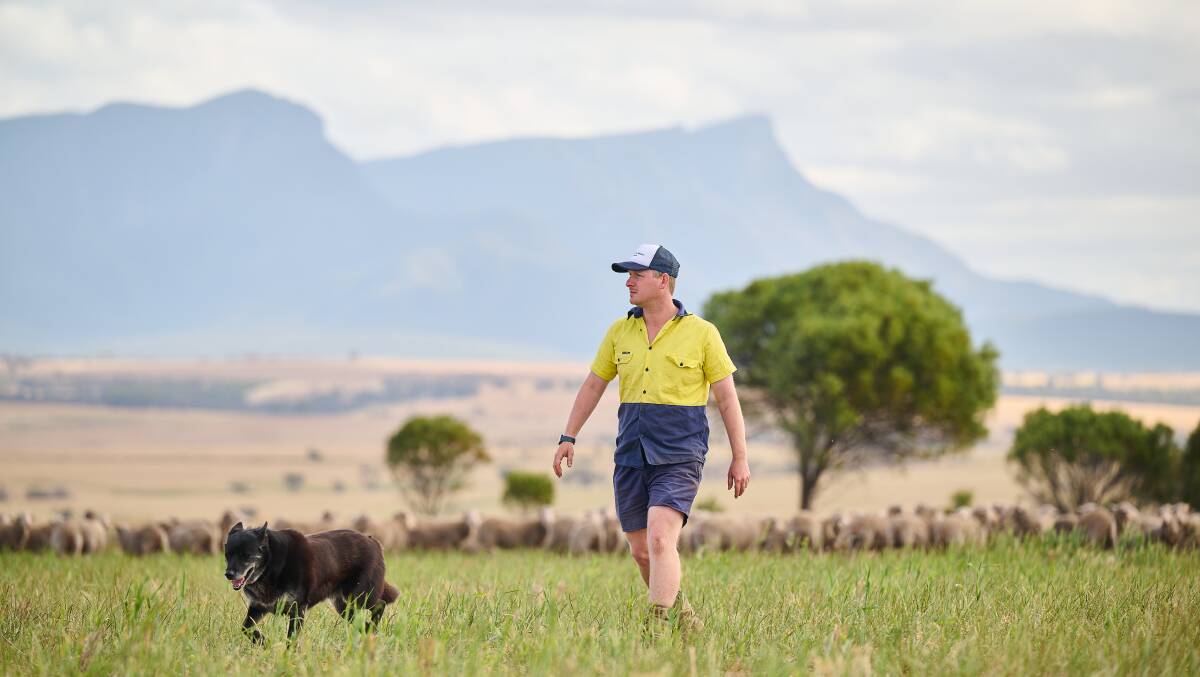
A campaign to save the live sheep trade has hit inner city Perth this week, as Prime Minister Anthony Albanese doubles down on phase out plans.
Subscribe now for unlimited access to all our agricultural news
across the nation
or signup to continue reading
The National Farmers Federation Keep Farmers Farming campaign has landed in Perth, with billboards and print and digital advertising targeting marginal seats to make farmers' voices heard.
NFF president David Jochinke said with a decision imminent about the future of the trade, it was critical that voters in battleground seats like Swan, Tangney and Hasluck understood what a ban would mean for jobs and small farming communities in WA.
"This policy is already hurting and frustrating farmers," he said.
"We're already hearing accounts of farmers getting out of sheep because they don't know what the future holds.
"What we're seeing now is only the beginning.
"Shut down this trade and the whole future of WA's $650 million merino wool industry is dicey at best."
Mr Jochinke said the policy was based on an outdated activist campaign and was due for a rethink.
"This policy has nothing to do with animal welfare," he said.
"It's about Canberra trying to win back green votes on the east coast at the expense of jobs and livelihoods in WA.
"If it was about animal welfare, you'd keep the trade going.
"Australia is the gold standard for live sheep exports.
"If we vacate the field, we just make way for competitors with no regulation."
Sheep and grain farmer Jamie Spence, from Borden in WA's Great Southern region, said a ban on live sheep to the Middle East would be a backward step for animal welfare and could have major price implications.
"We can't sell sheep to the market for a good price - young ewes which might have been $80 are now only getting $20," he said.
"We currently send a portion of our sheep to the live sheep trade and if it's banned - with the current backlogs in the domestic market - we feel we might not be able to keep operating our current sheep program."
When asked during parliamentary question time on Monday night by Nationals leader David Littleproud about whether Labor had undertaken any economic modelling around the implications of the phase out policy, Mr Albanese instead chose to focus on the rebutting that "a foreshadowed policy that hasn't happened has had this massive impact' on sheep meat pricing.
Mr Albanese said the government had appointed the independent panel in the interests of addressing the phase out "in a considered and orderly way".
"That's why we have very clearly not put a date on when the phase.out will happen.. we have said we will consult with the industry in the interests of a strong and sustainable future for the Australian sheep, wool and sheep meat industry," he said.
"That's one of the things we have doing as well, it must be said, is to negotiate with our trading nations in order to open up further our exports."
Mr Littleproud said the the government was destroying the livelihoods of 3000 people but failed to properly consider the wider implications.
"Agriculture Minister Murray Watt didn't have the courage to travel with an independent export phase out panel and look farmers in the eye himself to say he was stopping the trade - so the least he can do is provide details of his so-called scientific evidence," he said.
"However, we now know he won't release this evidence, or modelling, because it simply doesn't exist."
ACM Agri, the publisher of this masthead, is a proud media partner for this campaign.


